Bonus Perspectives: Trump-Harris Debate Aftermath, PS5 Pro Controversy, "The Death of Stalin," and Michel Legrand
On whether presidential debates still matter, how PlayStation is betraying its Japanese consumers, and your weekly media recommendations.
Bonus Perspectives is a weekly column series containing my thoughts on the latest Western news and Japanese news, as well as film, television, music, book, and video game recommendations. It’s free for all subscribers to this Substack, but if you enjoy my writing, consider opting for a paid subscription. Doing so will give you access to exclusive in-depth pieces and my entire backlog of work. Your support is greatly appreciated!
Paid subscriptions are currently 20% off from now until the end of October.
Trump and Harris come to blows — but will it matter?
Yeah, I’m late on this one as I am with a lot of news stories I cover on Bonus Perspectives. Former U.S. President Donald Trump and current Vice President Kamala Harris had their first (and seemingly only) debate on Tuesday, September 10, which means that by the time you read this, it has been well over a week. That’s practically an eternity when it comes to the 24/7 news cycle, and what I write already runs the risk of becoming quickly outdated or irrelevant.
So irrelevant, that since his debate with Harris, Trump has dodged yet another assassination attempt on his life last weekend. The facts are still coming in, so I’ll hold off my full thoughts until next week’s column. I just have to say that watching all of this unfold as an American living abroad has been like watching a political thriller film. Except that, you know, there are actual real world consequences to what happens. Isn’t U.S. politics great?
Back to the subject at hand, that debate. If you can even call it that. To the surprise of no one, Trump and Harris tussling on a closed debate stage with no audience and only moderators went as well as could be expected, which is to say that it was an unproductive disaster of two people talking past each other. I want to get it out of the way that I can’t stand either candidate when it comes to their personality, way of speaking, demeanor, and overall careers, but those are ultimately secondary to their actual stated policies.
I consider myself a center-right moderate, but to provide at least some level of objectivity, I have decided to not publicly reveal who I’m voting for or if I’ll even vote at all. Anything I write about Trump and Harris until the election will be based purely on what they’ve said publicly and I will attempt to be even-handed with my critiques.
As for their overall debate performances, I agree with the general consensus that Trump was not on his top game and he fell for practically every trap Harris set for him. Trump was overly emotional, rambling, constantly on the defensive, and kept pivoting to other topics when asked simple yes or no questions. A lot of what he said sounded very close to the podcast he did with Lex Fridman, which I covered last week. In classic Trump politician mode, he stuck to a set of talking points that he somehow believed would be made more effective if he repeated them over and over. I don’t think it worked on the debate stage.
Harris did a better job than most probably thought she would, but her attempts at being relatable and trying to come across as anything other than a career politician have never resonated with me. While Trump’s lies were greater in number than Harris’, her feet also need to be held to the fire. One of the few things I thought Trump was correct on was the Biden administration’s disastrous handling of the Afghanistan withdrawal. That was of course a complicated situation and the result of multiple presidencies, including decisions made by Trump, but leaving more than $7.1 billion in U.S. military equipment behind is a blunder Biden has never owned up to. Harris made no apologies for how everything went down and did not even acknowledge the deaths of 13 U.S. soldiers killed during the withdrawal when it was mentioned by Trump. It looks bad for the Biden administration, which Harris is a part of, no matter how you slice it.

When it came to foreign policy, my own field of interest, I found both candidates to be a mixed bag. As I mentioned in my thoughts on his Lex Fridman appearance, Trump’s boasts of being able to end the war in Ukraine in 24 hours after entering the White House sound like pure fantasy. While it’s understandable that he would not want to publicly reveal his plans at this stage, there is little evidence to suggest that either Vladimir Putin or Volodymyr Zelenskyy would be willing to come to the negotiating table anytime soon. Trump was asked a simple question if he wanted Ukraine to win and him avoiding it by answering “I want the war to stop” gives Kyiv every reason to be nervous.
Harris was far more reassuring with her promises to continue the aid to Ukraine and to not abandon U.S. allies. For decades, this was the standard view among mainstream Democrats and Republicans, but the recent isolationist wing of the latter could be greatly strengthened if Trump returns. While I think Harris is good on Ukraine, her wishy-washy stance on the war in Gaza is frankly delusional. Although reaffirming her support of Israel (which I agree with), her commitment to a “cease-fire” deal ignores the fact that Hamas’ stated desire is the removal of all Jews from the region. Palestinians will not have better lives without Hamas being completely defeated. A temporary peace treaty they’ll inevitably break again in a few years is not feasible.

As I’ve written previously, my biggest concern with Kamala Harris is her history of switching positions. During the debate she once again avoided questions on why she changed her stances on fracking and government-run healthcare. While Harris is taking certain sides now, her lack of consistency over the years raises questions over what policies she would actually enable if she were to become president.
I’ll leave the analysis of domestic U.S. policies to people who actually have to live with them, but one last point I’ll comment on with the debate is Trump’s odd insistence on promoting the debunked reports that Haitian immigrants are eating pets in Springfield, Ohio. My friend Noah Smith has written an in-depth piece refuting this nonsense that I highly recommend reading, but the TL;DR version is that Trump’s running mate J.D. Vance essentially invented the claim out of thin air. MAGA supporters have been trying to find anything connecting Springfield’s large population of Haitians to pets being eaten, but, if you’ll excuse the pun, there’s no meat on these bones.

Some on the left seem to believe that Trump repeating the “Haitian immigrants are eating your pets” line at the debates was the smoking gun to end his campaign, but I don’t understand why. Remember that this is still the same guy who won in 2016 despite the Access Hollywood tape. It remains to be seen if Trump will continue using this talking point, but I have my doubts it will matter in the end. In fact, I don’t think this debate is going to matter at all either.
In the wake of the second attempt on Trump’s life, people have already more or less forgotten what was said at his debate with Harris. This assassination too will inevitably become memory-holed like the first one in Butler, Pennsylvania because that’s simply how our modern news cycle works. The vast majority of Americans have long decided which candidate they’re voting for, which is why the undecided or wavering demographics of voters in the middle are going to be essential for deciding the outcome of this election.
There’s an argument to be made that presidential debates are now archaic exercises in political discourse. They seem to have little effect in changing anyone’s mind and the existence of a brash, loudmouth candidate like Trump who has radically changed how politicians on both sides of the aisle interact each other seem to make the whole idea futile. Watching the 2008 debates between Barack Obama and John McCain or the 2012 debates between Obama and Mitt Romney show just how much the quality of discussion and basic pretenses of politeness have eroded. Until we move past the Trump era, perhaps we shouldn’t even bother with debates at all.
Sony unveiled the PlayStation 5 Pro and no one liked that, especially in Japan
Call me Nostradamus, because pretty much everything I said and predicted about the PlayStation 5 Pro a couple of weeks ago has turned out to be true. I already lambasted Sony for raising prices of the base digital and disc drive PS5s in Japan, but they’ve gone even further and announced a spec-upgraded version of their video games console at an eye-watering ¥120,000 yen. At current conversion rates, that’s roughly $850 USD, far and above the standard $700 USD asking price the PS5 Pro will fetch in the United States.
To add insult to injury, the PS5 Pro ships with neither a disc drive for physical games nor even a stand to prop the console upright. That’s an additional $80 and $30 respectively because Sony hates you and every fiber of your existence. There are even scalpers trying to resell the separate disc drives for absurd prices, which at the very least I hope is only a temporary fad. Either way, this doesn’t change the fact that these were once standard hardware features already included with the base PS5 at launch back in 2020. As I elucidated in my previous column, this might be the first video game console generation where it was better to be an early adopter instead of waiting for prices to go down.

Lead architect Mark Cerny presented the enhancements offered by the PS5 Pro via a technical presentation video, which is supposed to be a step up from the existing PS5 hardware. While the idea of smoother framerates at higher resolutions is indeed desirable, I don’t think it’s worth the ¥120,000 upgrade. None of the games shown are going to be system sellers, and the PS5 on its own as very few native exclusives. Titles like The Last of Us Part II and the recently leaked Horizon Zero Dawn remaster are still playable on base PS4s. I’m not saying that the PS5 Pro won’t make them look better, but how many existing PS4, PS4 Pro, and PS5 owners are going to be compelled to upgrade? I’ll go out on a limb and assume not many.
Some of course will argue that the PS5 Pro is meant to be for enthusiast gamers and not run-of-the-mill casual to moderate ones. I don’t buy that because I’m exactly the kind of enthusiast gamer Sony should be targeting. I own every generation of PlayStation console and have been a loyal customer for years. But I’m not married to Sony either. I also regularly play Nintendo and Microsoft hardware depending on what offers the best experience. As is, I don’t think the PS5 Pro warrants its cost for slightly enhanced games when that money would be far better spent in other aspects of my video game hobby.

Japanese gamers are especially going to bear the brunt of Sony’s greed. As my friend Gearoid Reidy pointed out in his recent Bloomberg piece, ¥120,000 is roughly half of the average Japanese person’s monthly income. The base PS5 costing ¥73,000 is already about the cost of my rent, meaning that even it is going to be out of reach for most consumers in this country. Despite PlayStation being synonymous with Japan as a video game powerhouse, it’s obvious that Sony is putting its country of origin on the back burner in favor of the American market. Europeans are not happy with the cost of the PS5 Pro in their own currency either.
I’m most worried about what the exclusion of a disc drive in the box means for the future of physical media and video games. Despite what some may tell you, they still make the large bulk of video game purchases on consoles. Admittedly, things like patches and downloadable content have called into question how much of the game you actually “own,” but I will take a half-measure any day over a digital library tied to a console that can be Thanos snapped away at a company’s whim.
So no, I will not be buying a PlayStation 5 Pro. I’m astounded by how much Sony thinks they can get away with charging for it in Japan and I can’t see the system doing well here. My current plan is to keep my regular PS5, which I use frequently as a 4K UHD Blu-ray player, and hold out until the inevitable PS6 down the line. If that too will launch without a disc drive, I will move on to PC gaming where I can at least own and preserve my digital games via other methods. I won’t say that we’re entering the end of video game consoles just yet, but I don’t like where the future is currently headed.
What I’m watching — “The Death of Stalin” is astute political satire for all eras
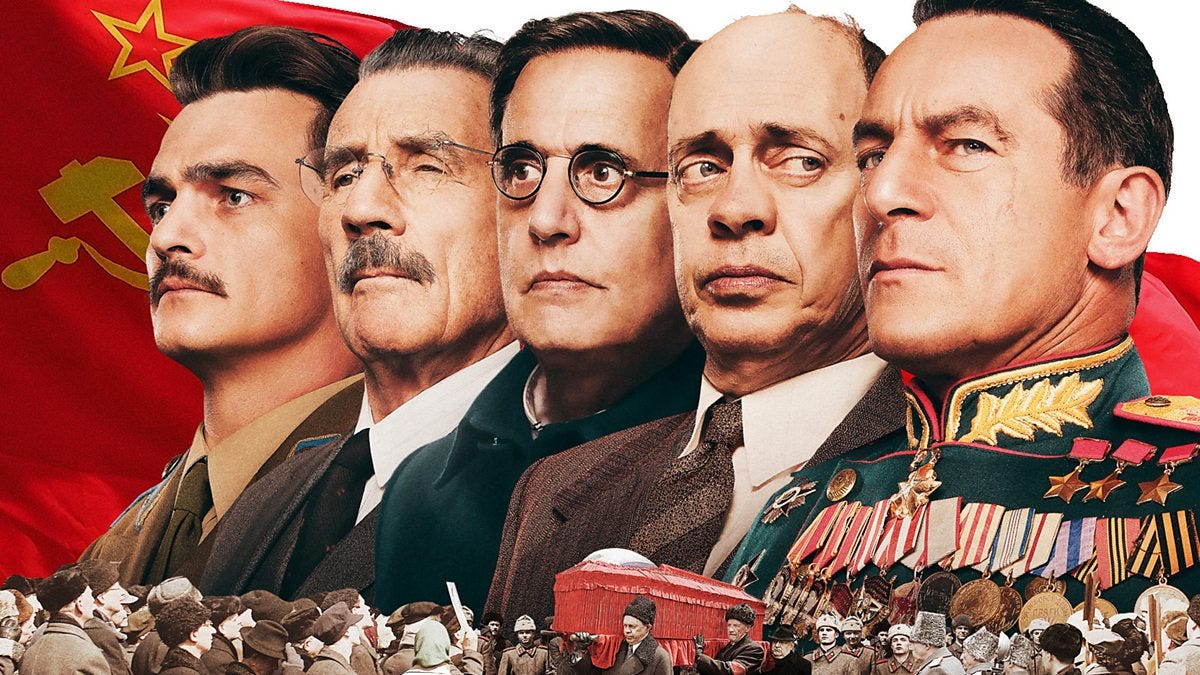
It took me longer than it should have to get to this one, but I finally watched The Death of Stalin. Given my Chinese family’s background of surviving the Cultural Revolution as well as my interest in the history (and failure) of communism as a researcher on North Korean topics, it’s surprising that I did not see it earlier. Directed by Armando Iannucci of Veep fame, The Death of Stalin is a glorious political satire that calls back to 20th century classics like The Great Dictator and Dr. Strangelove.
Joseph Stalin was a indisputably a monster. While the West had to become allies with him out of pragmatism to defeat the Nazis during World War II, he was responsible for the Holodomor famine genocide which killed millions of Ukrainians and enacted the Great Terror which established the Soviet Union as one of the most brutal totalitarian regimes of the 20th century. Nazi Germany, correctly, is synonymous with human evil because of the Holocaust, but communist regimes ended up killing far more people. They just were more gradual about it over a longer period of time.

That context just makes it all the more amazing that Iannucci was able to turn one of the least-funny subjects imaginable into something that manages to be both good satire and a laugh-out-loud comedy. Based on the French graphic novel of the same name, The Death of Stalin centers around the ensuing power vacuum in Moscow after its leader unexpectedly passes away. I won’t spoil how the film depicts Stalin dying, but rest assured it’s one of the funniest things you will have seen in a long time.
While being well-versed in Soviet history is not a requirement to understand this film, having some knowledge will certainly enhance your enjoyment in how it portrays real figures like Nikita Khrushchev, Lavrentiy Beria, and Georgy Zhukov. The official portraits issued by the Soviet Union have always given the impression of no-nonsense statesmen, ministers, and military officials, but The Death of Stalin, even with all of its obvious exaggerations, reminds us that these too were flawed men subject to the same follies we all have.
The film is in English, but like HBO’s Chernobyl mini-series, does not put hammy Russian accents on its characters. The performances from its stellar cast are what truly sell the comedic proceedings, and it’s clear that everyone is having the time of their lives. Steve Buscemi is probably the last person anyone would ever imagine playing Khrushchev, but he completely pulls it off. It’s a role that feels straight out of a Shakespearean play, with Buscemi maintaining the right balance of exasperation and cunning as he manipulates the other players around him.
Jeffrey Tamboor is the opposite with Georgy Malenkov, convincingly portraying a spineless politician tasked with leading the entire Soviet Union in the wake of Stalin’s death who also happens to be the most incompetent man for the job. His interactions with the rest of the cast provide some of the story’s funniest moments, with their petty squabbles illustrating the absurdity of communist bureaucracy. There is not one miscast actor here, but it’s clearly Jason Isaacs who steals every scene he’s in as the boisterous Field Marshal Georgy Zhukov with a heavy Yorkshire accent. Just like how he was in real life, I’m sure.

The Death of Stalin plays fast and loose with the real history of its era, but no one would ever confuse this film for being a non-fiction documentary. It instead aims to highlight how one of the most insidious regimes in history was also run by normal humans who were not on a different level of existence than the rest of us. Some were ambitious, some were cowards, and most only wanted to pass the buck onto the next guy as to not take responsibility for inefficiencies of their system. It only takes a few intelligent people to run a machine while everyone else follows orders.
In our modern era of politics that just seems to be getting dumber with every passing election cycle, The Death of Stalin shows that all forms of leadership — good and bad — are run by people, not machines. Watch it to be entertained, but also watch it to be reminded that things could always be much worse.
What I’m listening to — Michel Legrand was an underrated jazz and film composer genius
If you’re a regular reader of Bonus Perspectives, then you know that I have a wide taste in music. I’ve written about my love for Prokofiev, how Michael Giacchino is one of the best film composers alive, and why you should listen to (still) living jazz legend Sonny Rollins. While those are probably lesser known names, I don’t think they’re exactly obscure to the average person if you showed them a few of their pieces. Michel Legrand though? Now there’s a name I hardly ever hear anyone talk about.
Despite being responsible for over 250 film and television scores, the French composer is rarely brought up in conversation next to the likes of John Williams or Howard Shore despite having just as prolific of a discography. He never did many franchise films, which is probably a contributing factor to his lack of name recognition, but the work he left behind speaks for itself. Born on February 24, 1932, Legrand was destined to have a life-long relationship with music. At just age 11, he studied at the esteemed Conservatoire de Paris and by his 20s was already working with jazz musicians like Miles Davis as a pianist.
Legrand won five Grammys and three Oscars, the most notable being for the theme song “The Windmills of Your Mind” from the 1968 heist film The Thomas Crown Affair. The haunting lyrics by Alan and Marilyn Bergman have always stuck with me ever since I first heard it as a teenager (over a decade ago, I’m not that old!), while it’s a textbook example of Legrand’s knack for composing memorable melodies that stick with the listener apart from the films they were intended for. I still haven’t actually seen The Thomas Crown Affair, but then again I haven’t seen Summer of ‘42 either, which also has a gorgeous theme composed by Legrand.
What introduced me to Michel Legrand? Orson Welles, my favorite American director who deserves his own proper write-up one day. Released in 1973, F for Fake was the last film released during his lifetime and unintentionally created the video essay genre decades before YouTube was a thing. Legrand’s jazzy music was exactly the kind of playful ambience Welles needed to sell a picture about fakery and deception. Owing to their friendship, its opening track was later titled “Orson’s Theme,” and Legrand would go on to cover it dozens of times across future jazz albums and live concert performances.
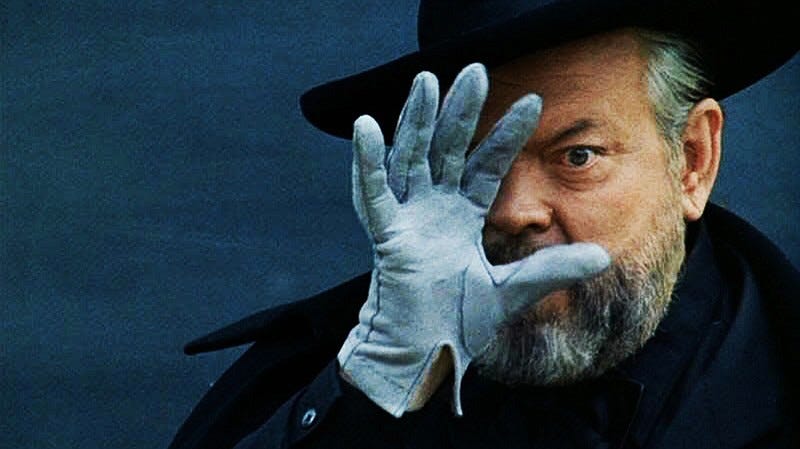
One of the greatest miracles of cinema and music is that Michel Legrand lived long enough to compose the music for Orson Welles’ true final film, The Other Side of the Wind. The hellish production behind this picture is yet another subject that really does deserve its own article, but to cut an extremely long story short, the movie began shooting in 1970 and did not get completed until 2018. It probably holds the world record for longest time to create a single film from writing to release ever, but Legrand was always supposed to do the music. While Welles died decades before The Other Side of the Wind was finally finished, the score Legrand produced is among his finest work and feels like the natural successor to what he did on F for Fake.
It also proved to be among his last scores, as the composer passed away in early 2019 at the age of 86. Even in his twilight years, Legrand was still doing live shows and working on film scores. While his name might never have been household status, it’s a testament to the man’s talents that he was able to achieve an impressive oeuvre of music with everyone from Miles Davis to Orson Welles. I have a feeling that Michel Legrand had just the right amount of fame he wanted. It was always going to be secondary to his love of music.
Recommendations:
“The Jitterbug Waltz” from Legrand Jazz with Miles Davis
“The Windmills of Your Mind” from The Thomas Crown Affair, sung by Noel Harrison with lyrics by Alan and Marilyn Bergman
“Theme from Summer of ‘42” from Summer of ‘42
“Theme from F for Fake” from F for Fake
“Orson’s Theme” from After the Rain
“Chapter 1” from The Other Side of the Wind
Foreign Perspectives is a reader-supported Substack. If you like my work and have come this far as a new reader or free subscriber, consider opting for a paid subscription so I can continue writing in-depth articles such as these on a regular basis. Your support is greatly appreciated!
Paid subscriptions are currently 20% off from now until the end of October.






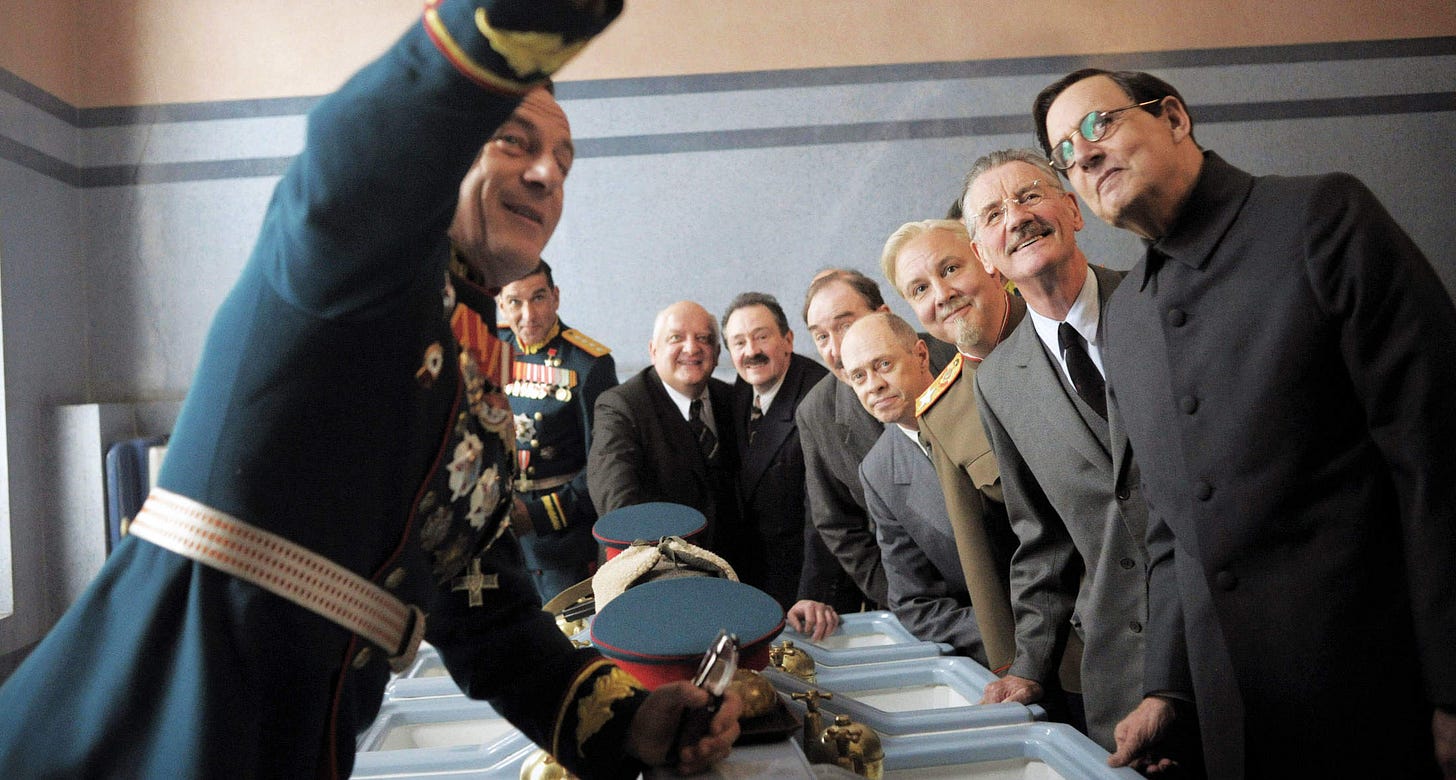
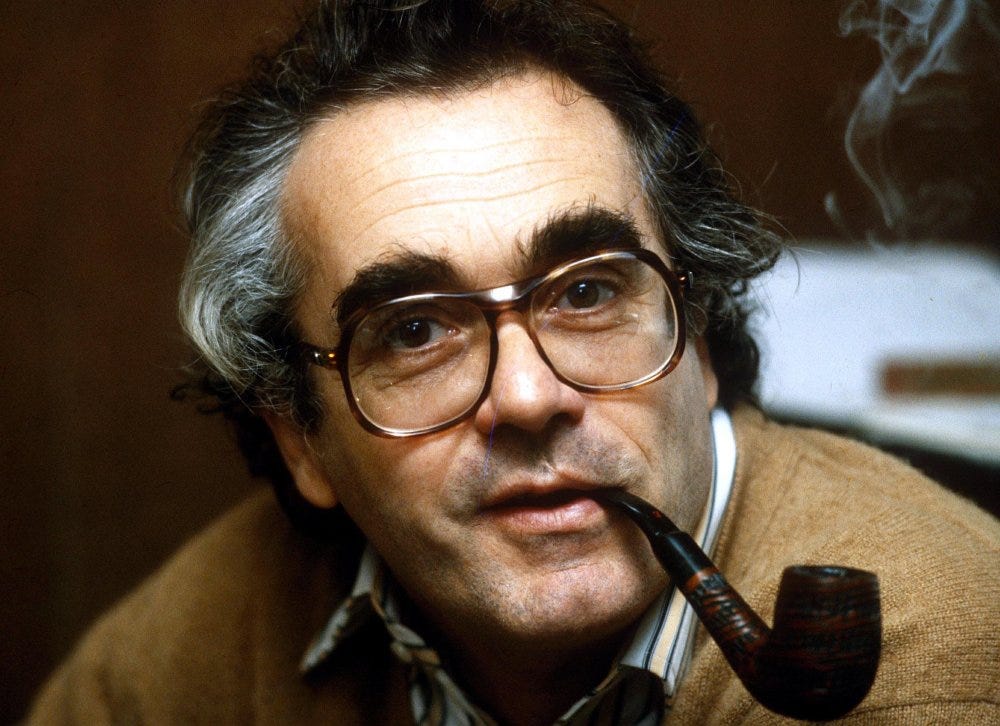
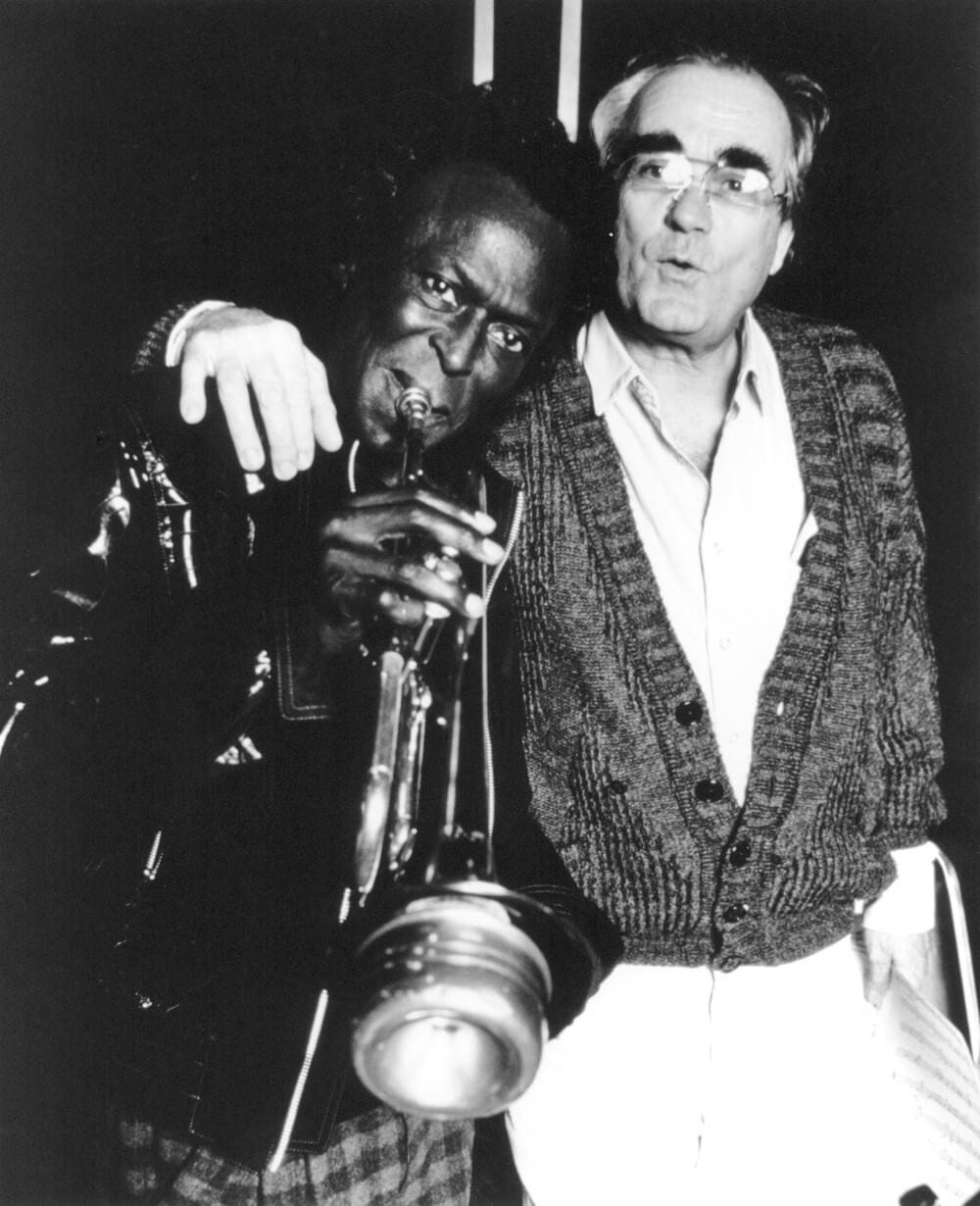
Neutrality doesn't really facilitate objectivity if the threats from one side are fundementally asymmetric vs the other wide.